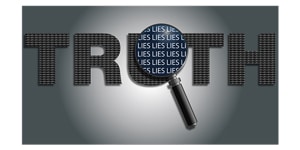
For those few people who still think that Science is a pure and untainted search for truth, working for the betterment of mankind, the unfolding drama of the novel coronavirus pandemic should definitely disabuse them of that notion. Let’s start with China’s shameful actions at the very beginning.
On December 10, 2019, Wuhan seafood merchant Wei Guixian was feeling ill, and sought treatment for flu-like symptoms. By the 16th, she was admitted to a local hospital, suffering from a “ruthless” infection, and by the end of the month was quarantined. She has subsequently recovered. On December 30, Ai Fen, of Wuhan Central Hospital, posted information on WeChat about the new virus. She was reprimanded for doing so and told not to disseminate information about it. The next day, Chinese officials informed the World Health Organization.
However, on January 1, 2020, the Hubei Provincial Health Commission ordered labs, which had already determined that the novel virus was similar to SARS, to stop testing samples and to destroy existing samples. In the ensuing weeks, Chinese scientists mapped the virus’ genome, although they waited several days before releasing this information. They also underplayed how much the infection was proliferating.
Infamously, on January 14, the now brutally-politicized WHO parroted the Chinese government’s ridiculous contention that “Preliminary investigations conducted by the Chinese authorities have found no clear evidence of human-to-human transmission of the novel coronavirus.” Sure thing. A virus already identified as being similar to the notorious SARS is spreading like mad, and there is “no clear evidence.”
Detailed modeling published in March suggests that if interventions by the Chinese could have been conducted one week, two weeks, or three weeks earlier, cases could have been reduced by 66 percent, 86 percent, and 95 percent respectively—significantly limiting the geographical spread of the disease.
And, then, of course, there is the “Orange Man Bad” aspect of this whole affair. Trump was roundly condemned for his late January travel ban from China to the US. Indeed, on February 4, clueless (if not totally corrupt) WHO Director-General Dr. Tedros Adhanom Ghebreyesus (not a medical doctor) opined that “Such restrictions can have the effect of increasing fear and stigma, with little public health benefit.” Typically, few media outlets retracted their denunciations when it became obvious that Trump was absolutely correct in his actions.
Trump is also being criticized for his advocacy of hydroxychloroquine, in combination with various other drugs, as a possible treatment for COVID-19. The concept of using this sort of therapy is based on reports going back to at least 2005 that chloroquine is a potent inhibitor of SARS coronavirus infection and spread. Early publications on efficacy against COVID-19 include this paper, and the work of Didier Raoult et al.
There seem to be people objecting to this therapy simply because they believe that more deaths would be harmful to Trump’s reelection possibilities. Some media figures are even citing the absurd case of a person who ingested a fish tank cleaner in the hopes of gaining some benefit, implying that Trump is somehow responsible.
There are also quasi-legitimate objections. In ideal circumstances, all drugs would be subjected to randomized, double-blind controlled trials, of large size. Certainly, numerous pointy-heads have reminded us of this. But what they purposely do not detail to the lay public is that such a paradigm would require some Josef Mengele type figure first dividing the subjects into those who would get the active drug, and those who would not (even if it is random). Thus, in contradiction to all medical ethics, a possibly beneficial treatment would be denied to half the subjects, during a pandemic.
Not really the same as proving out a new weight-loss drug or skin cream, is it?
And, if this were not bad enough, the notably rare side effects of hydroxychloroquine—a drug in wide use for decades—have been played up. Bear in mind that dozens of drugs that went through supposedly rigorous randomized clinical trials have been pulled off the market.
In other words, sometimes the “gold standard” for proving out drugs is not always so golden. But leave it to feckless academics and political hacks to gin up a blatantly self-serving controversy—at exactly the wrong time.